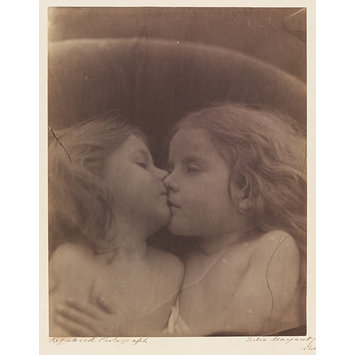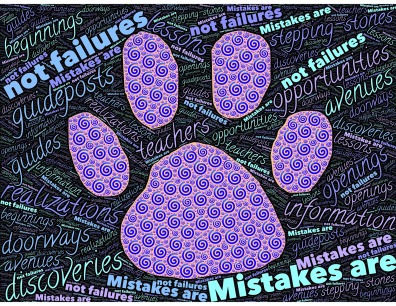
“When we first begin fighting for our dreams, we have no experience and make many mistakes. The secret of life, though, is to fall seven times and get up eight times.” – Paulo Coelho
Why are we often afraid of making mistakes?
Mistakes can make us feel stupid and vulnerable. Perhaps, as children, we were ridiculed or punished for getting our sums wrong, colouring outside the lines, or making spelling errors.
Let’s look at this differently. Spelling or maths mistakes might be regarded as attempts to learn. Colouring outside the designated lines could make us more innovative or creative.
The painter Howard Hodgkin would frequently paint onto the picture frame, so that this became an integral part of the work. This was probably deliberate (but who knows?)
It illustrates how the ‘mistakes’ of childhood can lead to creativity if not over ‘corrected.’
******
Here is a short list of benefits we might derive from errors:
1.If we do not make mistakes, we will not experiment
“Mistakes are, after all, the foundations of truth, and if a man does not know what a thing is, it is at least an increase in knowledge if he knows what it is not.”
We need to let ourselves make mistakes. Others must have the same rights, without us interfering in their process, even if we think we know better. Children also need this, to gain confidence and learn.
2. Mistakes can be learning opportunities, not failures.
“Mistakes are the portals of discovery.” James Joyce
Unexpected mistakes are opportunities for learning, producing many possibilities:
“Knowledge rests not upon truth alone, but upon error also.”
Learning from our mistakes involves trying to understand where and how we went wrong; this contributes to experience and knowledge.
3. We do not have to be perfect.
There is no need to get it all right, but it is important to recognise and own our mistakes. Denying responsibility will mean there is no learning or moving forward into further experimenting.
“By our stumbling, the world is perfected.”
4. Mistakes do not define you. Let them go. Try again.
“We all make mistakes, have struggles, and even regret things in our past. But you are not your mistakes, you are here now with the power to shape your day and your future.”
– Steve Maraboli

The legend of Robert The Bruce reveals how the Scottish King was hiding in a cave after the English king invaded. He was feeling very low and discouraged and afraid to return to the battlefield.
He was totally identifying with his mistakes, feeling a failure, instead of remembering that sometimes he could get things right.
Then he spotted a spider in the cave attempting to build a web, trying many times. At last the spider succeeded in building a beautiful web. 🕷🕸
The Scottish king told his troops: ‘If at first you don’t succeed, try, try again.’ Inspired by the humble spider, he returned to battle and was victorious.
We are all much more than our mistakes. We need to view them philosophically and with compassion – and move on.
5. Mistakes can be ‘happy accidents.’
A happy accident is a mistake that turns out well, a creative error with a surprisingly beneficial result.
The photographer Julia Cameron used her mistakes to improve her photographs, making them original and innovative.
The usual sharp focus aimed at by other photographers was abandoned in order to create atmosphere and character.
Uneven coating of the negative lent a watery, bubbled and streaky effect to the finished work, which was criticised at the time as careless and ‘slovenly.’ However, the result was ethereal, fragile:

Julia Margaret Cameron ‘Double Star.’ 1864.
“Creativity is allowing yourself to make mistakes. Art is knowing which ones to keep.’ –Scott Adams
“Go and make interesting mistakes, make amazing mistakes, make glorious and fantastic mistakes. Break rules. Leave the world more interesting for your being here. Make. Good. Art.” –Neil Gaiman
Children often rip their paper in frustration if they feel they have made a mistake. Perhaps they can be helped to recognise that mistakes can be rectified, or used.
If not, they can ‘start all over again,’ having learned from their errors. The concept of correctness can sometimes be stultifying to us all.

6.“There are no mistakes in life!” – Oprah Winfrey
Linked to the happy accident is the view that all mistakes are lessons.
In his book ‘On Learning from the Patient’, Casement shows that psychotherapists can make discoveries through their patients’ awareness that a mistake has been made. The patient will often refer to therapist mistakes directly or indirectly. (p180)
*******
Alexander Fleming accidentally left an unwashed petri dish in his lab whilst on holiday in 1928; he noticed that around the mould that had grown on the dish, there were no bacteria.
He realised that something in the mould was destroying the bacteria. Thus was discovered penicillin and from this, a whole array of different antibiotics; all because of a dish he forgot to wash.

Sir Alexander Fleming. Sandy Stevenson. Flickr.
*******
Others think that everything we do is pre-destined and our mistakes are part of a larger plan. From this spiritual point of view, there is no coincidence, only synchronicity:
Learn to get in touch with the silence within yourself, and know that everything in life has purpose. There are no mistakes, no coincidences, all events are blessings given to us to learn from.
Elisabeth Kubler-Ross
7. Mistakes keep us self-aware, mindful of the unconscious and of our own- and others’- humanity.
Taking the theme of synchronicity even further, we can examine psychoanalytical views of the mistake.
Freudian Slips are those inevitable slips of the tongue that we often find amusing. They can be very telling messages from our unconscious.
The Freudian slip, or parapraxis, may be interpreted as a ‘verbal error’ that indicates what lies beneath awareness, exposing our true thoughts and feelings:
In 2010 Radio 4’s Today programme presenter James Naughtie accidentally introduced Culture Secretary Jeremy Hunt as Jeremy C * live on air.
He later apologised, saying he “ got into an awful tangle” and explained he mixed up the words ‘Hunt’ and ‘Culture’.
Such ‘mistakes’ keep us grounded, humble, warning us about being conceited or careless. They remind us that imperfections create interest, humour and make us human.
“A person who never made a mistake never tried anything new.” – Albert Einstein
“There are only two mistakes one can make along the road to truth; not going all the way, and not starting.”
